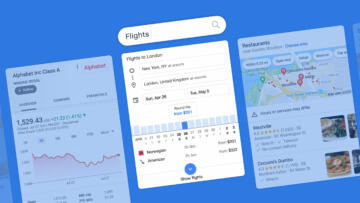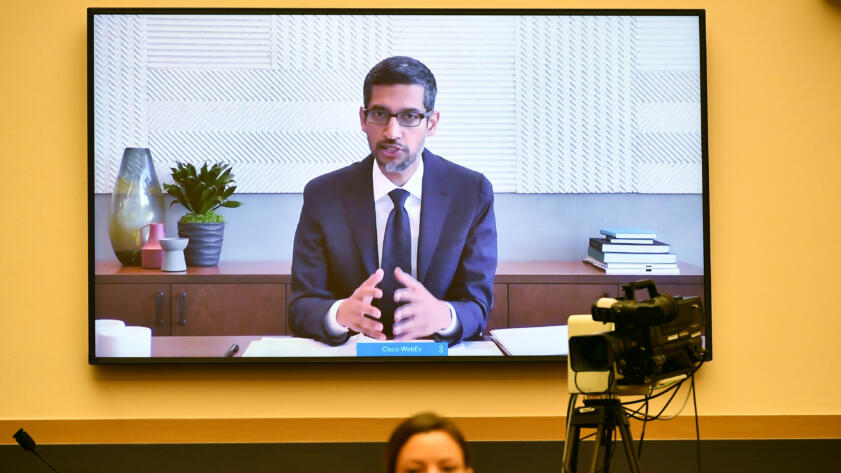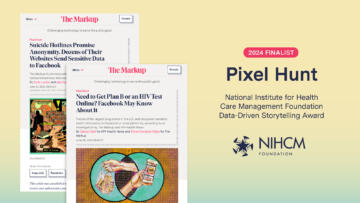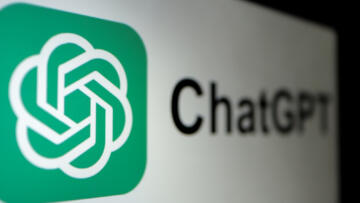In a historic hearing questioning the heads of four of the nation’s five largest technology companies, the chair of Congress’s antitrust subcommittee, David N. Cicilline, on Wednesday directed sharp criticism at Sundar Pichai, CEO of Google’s parent company Alphabet, pointing to The Markup’s findings that Google Search places the company’s products and results above competitors’.
“An investigative report published just yesterday found that 63 percent of searches that start on Google also end on Google’s own websites,” Cicilline said, referring to our findings about results on the coveted first screen. “And to me that is evidence that Google is increasingly a walled garden which keeps users on Google’s sites, even if Google doesn’t have the most relevant information. And it’s economically catastrophic for other companies online.”

Google the Giant
Google’s Top Search Result? Surprise! It’s Google
The search engine dedicated almost half of the first page of results in our test to its own products, which dominated the coveted top of the page
Cicilline mentioned the report after asking, “Increasingly what Google shows is what is most profitable for Google. Isn’t there a fundamental conflict of interest?”
Pichai responded, “In a vast majority of queries on Google, we don’t show ads at all.”
The hearing was the sixth in a year-long series titled Online Platforms and Market Power, which has included testimony from experts, competitors, and lower-level executives from the four tech giants, Google, Apple, Facebook, and Amazon. It was the first time all four had been questioned together, and Amazon CEO Jeff Bezos’s first appearance before Congress.
They were asked about their respective market dominance and treatment of competitors. And some members of the committee asked the CEOs about their treatment of conservative media and causes.
The hearing came one day after The Markup published a months-long, painstaking investigation into Google Search that for the first time quantified how much the company highlights its own products and serves “answers” on the results page, many of which take information from other websites and are meant to satisfy queries without the need to leave the Google universe of products.
Our sophisticated analysis of more than 15,000 U.S. trending queries found that Google gave 41 percent of the first search results page to itself and dominated the coveted first screen.
Google spokesperson Lara Levin called The Markup’s methodology “flawed and misleading.” She criticized it for being “based on a non-representative sample of searches” and said using trending searches makes it more likely that results would include Google “knowledge panels”—information summaries curated from various sources—than a random sample would. As we wrote earlier, Google has not publicly released a random sample of searches.
Among the competitors who told The Markup that Google’s decision to highlight its own products in search is hurting other businesses is Chris Cummings, CEO of Curiosity Media, which owns SpanishDict.com. Cummings said that when Google serves SpanishDict as the top result, the site gets 80 percent of clicks—but when Google Translate appears above it, that figure drops to 2 percent.
Google’s decisions have limited the company’s growth, he said: “We only exist because there are still some queries where they don’t put their stuff at the top.”
Travel websites large and small said boosting Google Flights and Google Hotels on Google’s search results page has taken away business, even though some pay Google billions for ads.
To determine the amount of space Google dedicates to itself, we built a custom scraper to gather U.S. Google Trends for two months, starting in November 2019. We built another scraper to run the searches as they would appear on mobile devices, where the majority of searches now occur. We wrote more than 1,000 lines of code to parse and analyze the resulting dataset, which contained more than one million rows.
Members of Congress questioned Pichai, Bezos, Apple CEO Tim Cook, and Facebook CEO Mark Zuckerberg in a hearing that started more than an hour late and was ongoing as this story was published.
During Rep. Greg Steube’s time for questions, he accused Google company Gmail of censoring Republican email.
The Markup reported in February that Gmail was putting advocacy and political email from across the spectrum in its marketing tab rather than delivering it in the main inbox. (We found no political bias.)
Pichai replied to Steube that the company is doing what users want: segregating bulk emails from messages from friends and family.





